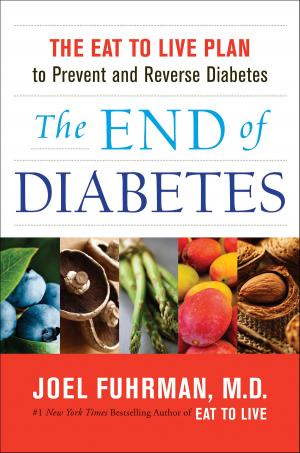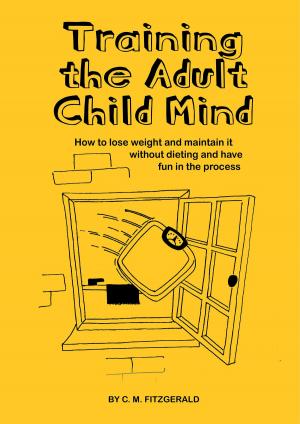When Diets Work
Overcoming Fat Loss Resistance
Nonfiction, Health & Well Being, Health, Nutrition & Diet, Weight Loss| Author: | Eduardo Castro, M.D. | ISBN: | 9780985741006 |
| Publisher: | WDW LLC | Publication: | March 20, 2013 |
| Imprint: | Language: | English |
| Author: | Eduardo Castro, M.D. |
| ISBN: | 9780985741006 |
| Publisher: | WDW LLC |
| Publication: | March 20, 2013 |
| Imprint: | |
| Language: | English |
When Diets Work: Overcoming Fat Loss Resistance is for people who do not lose weight when they diet, or not much at all. And for those who gain weight when they stop dieting. Dr. Castro calls this inability to lose weight Fat Loss Resistance Syndrome (FLRS), and hedecribes the underlying causes and how to correct them. FLRS usually has several underlying factorsthat can be corrected. • Disruption of the hormones that regulate fat storage and energy utilization • Excessive inflammation • Genetic expression is unhelathy Hormones A symphony of hormonesregulateprecisely how much fat we make and how much fat we store. It is all meticulously regulated by the interaction of our brains with numerous hormones, and the blueprint for this regulation of fatwas put into place when man walked the planet with a spear, and not certain of another meal. If you lose the normal regulation of the hormones that determine how much fat you have, they send messages to your brain and other tissues that you do not have enough stored. So your body does not burn fat, it makes and stores more. Cutting calories not only does not override FLRS, it makes it worse. The major hormones that play a major role in FLRS are insulin, leptin, thyroid, and cortisol. And for some, adrenalin and estrogen activity may play a significant role as well. Inflammation We need a good amount of inflammation to be healthy, to fight microbial invaders, to clean up debris, to heal. But it should be like a nice campfire, not like forest fire. But we live in a world of decreasing quality of food and increasing amounts of toxic sustances. These lead to excessive inflammation. It is this excessive inflammation that underlies virtually all of today’s chronic diseases, not just FLRS – Alzheimer’s, autism, cancer, arthritis, asthma, severe allergies. And our body burden of toxic substances continues to increase. To make matters worse in FLRS, excess fat is both a cause of and the result of too much fat. Excess fat leads to increased inflammation, and increased inflammation promotes obesity - a vicious cycle. Genetic Expression As luck would have it, it does not matter so much what genes we have, rather which ones are turned on and which ones are turned off. We have possible combinations of active genes that lead to vibrant health and others that lead to wretched health and an early death, and everything in between. The field that studies what affect our gene expression is called epigenetics. We can profoundly affect our gene expression. • Diet • Toxic load • Vitamin D level • The kinds and number of micro-organisms that inhabit our bowels • Our beliefs When genetic expression is unhealthy, it not only leads to weight gain but to low energy, poor sleep, and to a host of other problems, many of which make weight loss more difficult. Medications There are many medications that cause weight gain, and ironically enough, most of those used to treat Type II diabetes are among them. Dr. Castro lists the usual suspects in weight gain, alternative medications to those, and strategies for reducing or eliminationg the need for those medications. Overcoming FLRS Dr. Castro explains the way back to healthy hormone regulation, decreased inflammation, and healthy gene expression. FLRS is correctable and it is overcome when health is restored. That is when diets work. Dr. Castro also discusses various options as to how to go about dieting once FLRS is corrected and the important principles in how to maintain a healthy weight.
When Diets Work: Overcoming Fat Loss Resistance is for people who do not lose weight when they diet, or not much at all. And for those who gain weight when they stop dieting. Dr. Castro calls this inability to lose weight Fat Loss Resistance Syndrome (FLRS), and hedecribes the underlying causes and how to correct them. FLRS usually has several underlying factorsthat can be corrected. • Disruption of the hormones that regulate fat storage and energy utilization • Excessive inflammation • Genetic expression is unhelathy Hormones A symphony of hormonesregulateprecisely how much fat we make and how much fat we store. It is all meticulously regulated by the interaction of our brains with numerous hormones, and the blueprint for this regulation of fatwas put into place when man walked the planet with a spear, and not certain of another meal. If you lose the normal regulation of the hormones that determine how much fat you have, they send messages to your brain and other tissues that you do not have enough stored. So your body does not burn fat, it makes and stores more. Cutting calories not only does not override FLRS, it makes it worse. The major hormones that play a major role in FLRS are insulin, leptin, thyroid, and cortisol. And for some, adrenalin and estrogen activity may play a significant role as well. Inflammation We need a good amount of inflammation to be healthy, to fight microbial invaders, to clean up debris, to heal. But it should be like a nice campfire, not like forest fire. But we live in a world of decreasing quality of food and increasing amounts of toxic sustances. These lead to excessive inflammation. It is this excessive inflammation that underlies virtually all of today’s chronic diseases, not just FLRS – Alzheimer’s, autism, cancer, arthritis, asthma, severe allergies. And our body burden of toxic substances continues to increase. To make matters worse in FLRS, excess fat is both a cause of and the result of too much fat. Excess fat leads to increased inflammation, and increased inflammation promotes obesity - a vicious cycle. Genetic Expression As luck would have it, it does not matter so much what genes we have, rather which ones are turned on and which ones are turned off. We have possible combinations of active genes that lead to vibrant health and others that lead to wretched health and an early death, and everything in between. The field that studies what affect our gene expression is called epigenetics. We can profoundly affect our gene expression. • Diet • Toxic load • Vitamin D level • The kinds and number of micro-organisms that inhabit our bowels • Our beliefs When genetic expression is unhealthy, it not only leads to weight gain but to low energy, poor sleep, and to a host of other problems, many of which make weight loss more difficult. Medications There are many medications that cause weight gain, and ironically enough, most of those used to treat Type II diabetes are among them. Dr. Castro lists the usual suspects in weight gain, alternative medications to those, and strategies for reducing or eliminationg the need for those medications. Overcoming FLRS Dr. Castro explains the way back to healthy hormone regulation, decreased inflammation, and healthy gene expression. FLRS is correctable and it is overcome when health is restored. That is when diets work. Dr. Castro also discusses various options as to how to go about dieting once FLRS is corrected and the important principles in how to maintain a healthy weight.















